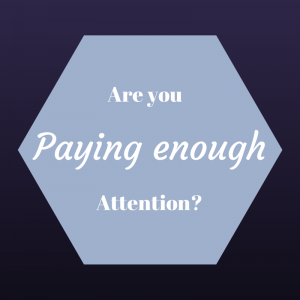“I don’t think the right words exist already in your head, any more than the characters do. They exist somewhere else…” — Anne Lamott, Bird by Bird
There’s an idea I’ve been playing with for a while now, ever since I first wrote this post on how meditation and writing might inform one another. Its an idea about where the words come from when we sit down and write our best work. It’s an idea that’s been coming up for me over and over again, both in my reading and in my writing practice, as each day I sit down and confront the blank page. It’s an answer to the question of why writers write.
What if our best writing comes from Wordlessness?
In her book Finding Your Way in a Wild New World, Martha Beck defines Wordlessness to be “a core aspect of your true nature. It connects your consciousness with the deep peace and presence that is the essential you.”
It is my growing belief that it is from Wordlessness that the very best writing comes. That it is only when we let go of rational thought and feel our way into our characters that the magic happens. That it is only when we pause and make space for the language to flow through us rather than trying to marshal the words from some limited place within us that we manage to write things that are so true they manage to surprise us.
It is for those moments of crystalline presence that I find myself returning to the pen, returning to the empty page. It is for those moments of clarity and breathless grace that I keep seeking — reaching for the edges of something that seems to be nearly infinite.
Because it is in those moments of stillness that I return once more to myself, shedding the weight of worlds and the worries of the day. It is in those moments that I pick up the pen and write.
To quote Anne Lamott once more:
“This is our goal as writers, I think; to help others have this sense of wonder, of seeing things anew, things that can catch us off guard, that break in on our small bordered worlds. When this happens everything feels more spacious.”
How does this goal impact what we write?
It’s a question I’ve been grappling with — especially as I’ve turned my attention more fully from poetry to stories in recent weeks.
For me, poetry is easy — it’s painting with words and it doesn’t have to have a why (although, admittedly, it often does). To my mind poetry is a bit like a literary attempt at flying — exhilarating and terrifying and over too soon — it leaves you feeling breathless and wonderful.
But stories are different, stories have to do more than dazzle the reader with a moment of brilliance. Stories have to connect and compel and propel us forward across pages and pages of words — they have to grab the reader by the hand and pull them forward until the reader laughs and cries and yields and feels giddy with the thrill of it.
It’s a thing that’s not easily done and something I’ve been forced to confront as I’ve begun to work toward what it means to write a really good story.
Which means that though I’ve turned my attention to stories — I find I’m still struggling a bit with the why.
Now it’s your turn! Why do you write? I’d love to hear your thoughts in the comments below!
Disclaimer: This post contains Amazon affiliate links. I make a (very) small referral commission from purchases made using my links. This does not affect your price.
